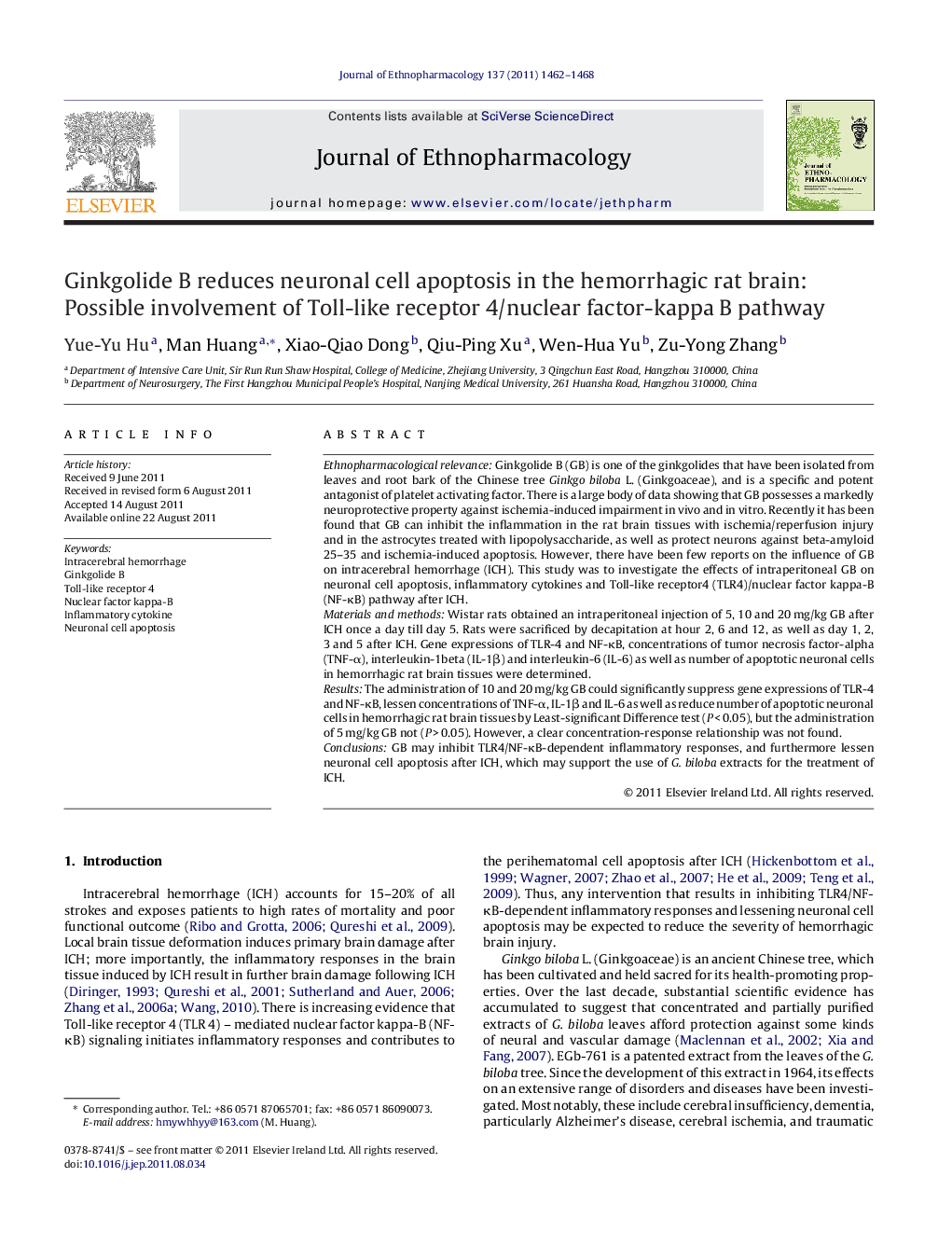| کد مقاله | کد نشریه | سال انتشار | مقاله انگلیسی | نسخه تمام متن |
|---|---|---|---|---|
| 5839462 | 1123993 | 2011 | 7 صفحه PDF | دانلود رایگان |

Ethnopharmacological relevanceGinkgolide B (GB) is one of the ginkgolides that have been isolated from leaves and root bark of the Chinese tree Ginkgo biloba L. (Ginkgoaceae), and is a specific and potent antagonist of platelet activating factor. There is a large body of data showing that GB possesses a markedly neuroprotective property against ischemia-induced impairment in vivo and in vitro. Recently it has been found that GB can inhibit the inflammation in the rat brain tissues with ischemia/reperfusion injury and in the astrocytes treated with lipopolysaccharide, as well as protect neurons against beta-amyloid 25-35 and ischemia-induced apoptosis. However, there have been few reports on the influence of GB on intracerebral hemorrhage (ICH). This study was to investigate the effects of intraperitoneal GB on neuronal cell apoptosis, inflammatory cytokines and Toll-like receptor4 (TLR4)/nuclear factor kappa-B (NF-κB) pathway after ICH.Materials and methodsWistar rats obtained an intraperitoneal injection of 5, 10 and 20 mg/kg GB after ICH once a day till day 5. Rats were sacrificed by decapitation at hour 2, 6 and 12, as well as day 1, 2, 3 and 5 after ICH. Gene expressions of TLR-4 and NF-κB, concentrations of tumor necrosis factor-alpha (TNF-α), interleukin-1beta (IL-1β) and interleukin-6 (IL-6) as well as number of apoptotic neuronal cells in hemorrhagic rat brain tissues were determined.ResultsThe administration of 10 and 20 mg/kg GB could significantly suppress gene expressions of TLR-4 and NF-κB, lessen concentrations of TNF-α, IL-1β and IL-6 as well as reduce number of apoptotic neuronal cells in hemorrhagic rat brain tissues by Least-significant Difference test (P < 0.05), but the administration of 5 mg/kg GB not (P > 0.05). However, a clear concentration-response relationship was not found.ConclusionsGB may inhibit TLR4/NF-κB-dependent inflammatory responses, and furthermore lessen neuronal cell apoptosis after ICH, which may support the use of G. biloba extracts for the treatment of ICH.
156
Journal: Journal of Ethnopharmacology - Volume 137, Issue 3, 11 October 2011, Pages 1462-1468